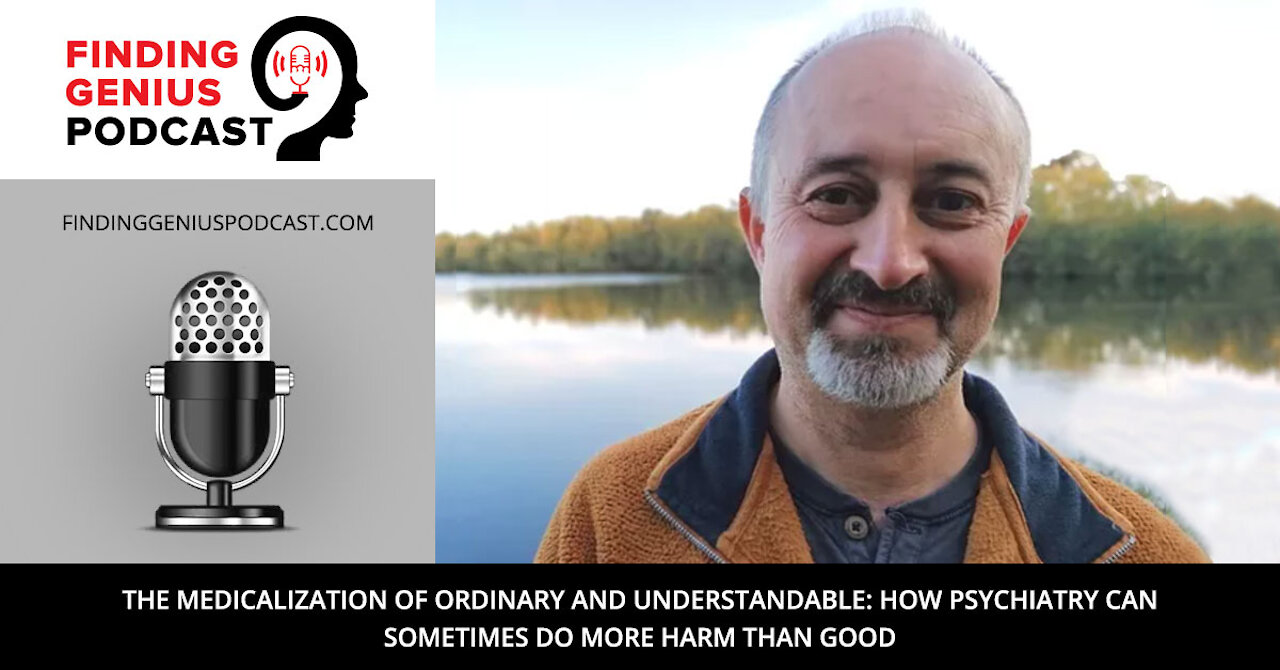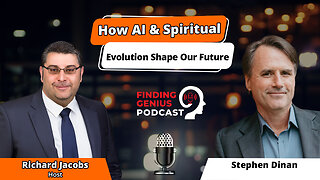Premium Only Content

How Psychiatry Can Sometimes Do More Harm Than Good
“If it ain’t broke, don’t fix it.” It’s a saying you’ve probably heard before, but today’s episode puts a spin on it and places it in the context of mental health: “If it’s not ‘wrong,’ don’t try to fix it as if it is.”
Tune in to discover:
How and why psychiatric diagnoses have become more like labels that act as consumer brands rather than scientifically-based medical diagnoses
The power of labeling and its effect on self-perception and perception of others
The definition of meta-emotions and how people experience them
How developmental expectations of adolescents and young adults differ between cultures, and the conflict they can create within the person who is held to those expectations
The critical difference between ordinary, understandable emotions and clinical conditions perceived as “wrong” and in need of medical treatment
Dr. Sami Timimi is a consultant child and adolescent psychiatrist who has worked at National Health Service in the UK his entire working life. He’s been involved with several research projects involving mental health and cross-cultural issues, and has contributed to the publication of a dozen books, in addition to many papers and journal articles. He frequently appears in national and international conferences on matters of mental health, and teaches and trains others in his area of expertise.
In the early 90s during his medical training, Dr. Timimi completed a placement in child and adolescent psychiatry, a field that at the time saw children and young people as connected to their history and broader environment (e.g., their parents, peer groups, cultural ideas). It was nothing like what he’d seen in general psychiatric wards, which he describes as dominated by a narrow medicalized approach as opposed to a truly therapeutic approach that embraces a broader understanding of how mental health problems are identified, characterized, and addressed.
For over two decades now, Dr. Timimi has immersed himself in this field as a practicing child and adolescent psychiatrist.
In this episode, he discusses everything from the way cultural and societal expectations and assumptions shape the way we perceive our own experience and the experience of others, to how ideas popularized by many in the psychiatric profession actually contribute to increased rates of distress and feelings of alienation in young adults (especially in the context of the current virus situation).
He also explains how certain treatments given for a short-term problem can actually cause it to become a long-term problem.
But it’s not all bad. Tune in to learn about some extremely successful models for addressing even the most serious mental issues; chances are, you’ve never heard of them before.
Visit https://www.madinamerica.com/ for more information and resources.
Episode also available on Apple Podcasts: http://apple.co/30PvU9C
-
 40:04
40:04
FGP
21 hours agoThe Shift: Stephen Dinan On How AI & Spiritual Evolution Shape Our Future
17 -
 LIVE
LIVE
Joe Donuts Live
2 hours ago🟢 Loot Rats Unleashed: Arena Breakout Chaos! | Joe + Tony + Vlad
717 watching -
 11:18
11:18
Dr Disrespect
2 days agoDr Disrespect: THE BEST AND WORST OF GAMESCOM 2025
133K23 -
 LIVE
LIVE
Boxin
1 hour agoGrounded! part 5
125 watching -
 2:10:12
2:10:12
Badlands Media
1 day agoDevolution Power Hour Ep. 383: Epstein, Durham, and the Dictator Narrative
100K84 -
 2:40:10
2:40:10
DLDAfterDark
12 hours ago $0.51 earnedDLD Live! Feat. Red Dawn Readiness! Glock FRT's - Striker Fire Safety Concerns - ACE Trigger
46.4K8 -
 2:40:21
2:40:21
BlackDiamondGunsandGear
11 hours agoAre ALL Striker Fired Pistols UNSAFE? // After Hours Armory
56.8K16 -
 LIVE
LIVE
TheSchleppy
6 hours ago✨TheSchleppy✨EWC COUNTER STRIKE 2 GRAND FINAL *MONGOLZ v AURORA*
63 watching -
 6:34:50
6:34:50
SpartakusLIVE
15 hours ago#1 Saturday Spartoons on RUMBLE PREMIUM
131K7 -
 1:04:59
1:04:59
Man in America
16 hours ago“Summoning the Demon” — The AI Agenda Is FAR WORSE Than We Know w/ Kay Rubacek
67K56